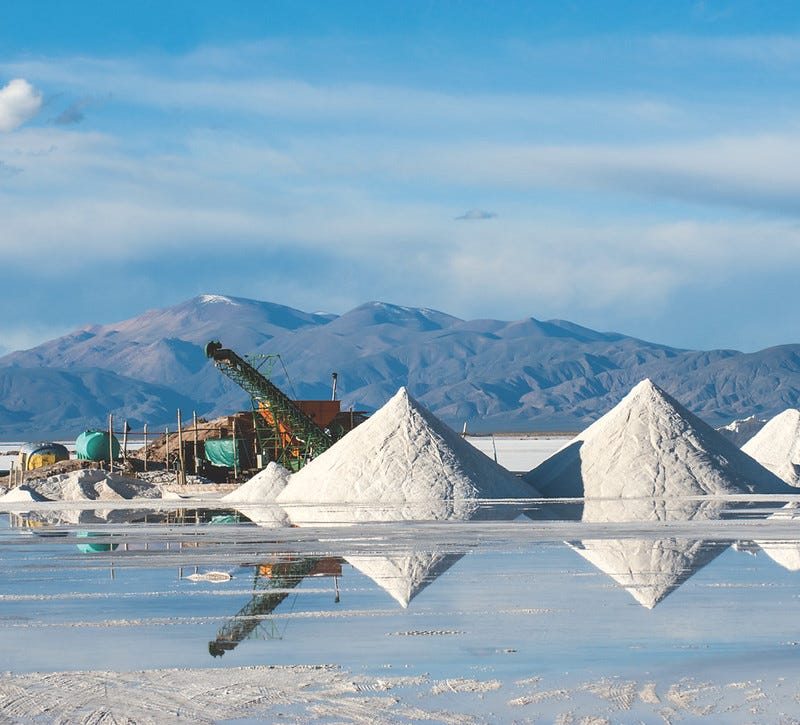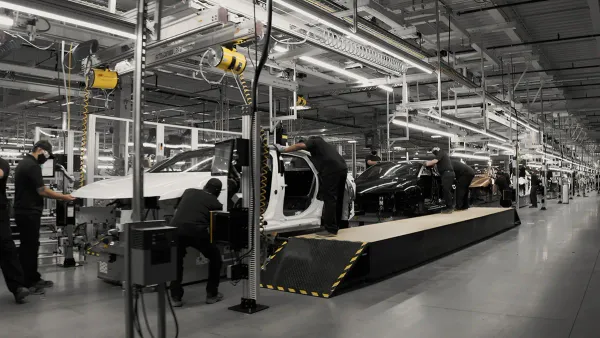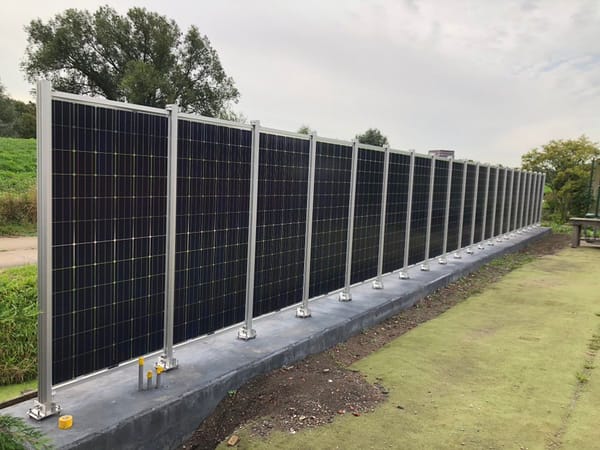Lithium and cobalt producers might end up ruling the green economy
Good Afternoon!
I’m back from one of the biggest oil producing nations in the world, Mexico, where gasoline prices are much cheaper than the U.S. and despite years of prevention programs, the smog is still very visible in Mexico City. My time there got me thinking about what happens when oil isn’t as important and something else is – and how do we get to that transition?
- Mike

Are you on(to) lithium?
If you visit New Bedford, Massachusetts, you’ll find an overstock of 19th Century mansions. There are so many of them, that for the last 100 years or so, many have been converted into apartments, giving the once fabulously rich city of 100,000 a strong whiff of “has been”.
Two hundred years ago, New Bedford was thriving like no other city in the United States. The center of the world’s whaling trade, New Bedford saw the invention of venture capital, as groups of investors from Boston and New York made bets on various ship captains to see which one would bring back the richest haul.
The oil made by boiling down whale blubber fueled lamps across the industrializing world was easily flammable, controllable with a wick, and burned brighter than candles. From about 1810 to 1870, it was hard to imagine a better way to light your home – until Samuel Kier figured out how to distill kerosene from Pennsylvania oil fields in the late 1850’s. It took a while but by 1873, wells in Pennsylvania were extracting 10 million barrels of oil a year. Although whaling ships still sailed from New Bedford until 1923, cheap and convenient petroleum products put an end to whale oil.
When an industry is booming, the possibility of radical change can be hard to see. For instance, in 2019, the United States spent around $700 billion on the fossil fuel economy, including oil, coal, and natural gas. Since the U.S. is one-fifth of the world’s energy consumption, you could assume the world spent at least $3.5 trillion on fossil fuels that year. All that money is flowing into a relatively small number of pockets, primarily the world’s biggest oil and gas producers, like the U.S., Russia, and OPEC nations, which means most of the world’s geopolitics are centered on where fossil fuels are produced, who gets money for it, and how it is transported to consumers.
As it turns out, the new, green economy doesn’t need fossil fuels. But it does need loads of certain minerals to build batteries and make EV motors, which pretty much everything is going to be running on as we transition. And the primary minerals for those batteries and motors are lithium, cobalt, and nickel – most of which does not reside in the biggest oil producing nations.
The world’s biggest producer and refiner of lithium is China. The world’s biggest producer of cobalt is Congo. With it’s giant reserves, could Congo become as powerful as Saudi Arabia is today?
Of course, the vast territory of the United States has cobalt reserves. And it turns out that Chile, Brazil, Argentina, and Australia have sizable lithium reserves. Northern Afghanistan, if you can get there, is being called the “Saudi Arabia of lithium” But many of those reserves are in remote areas, and then the processes of refining lithium and cobalt are expensive and bad for the local environment. But as a surprise to nobody, for the last 30 years, with no care for the environment, China has been building mineral processing supply chains, which means they can produce more and at a much lower cost than anyone else.
For instance, America’s only cobalt mine in Idaho was shut down when ore prices dipped below $25 a pound, an almost certain result of Chinese price manipulation – when you control the market, you can also control who can afford to enter the market. As it turns out, China controls most of the supply for so-called “rare earths” needed for high tech electric vehicles. Although the Biden Administration’s Inflation Reduction Act provides tax credits to countries with batteries produced with U.S.-favored trading nations, American companies are finding that it’s hard to source lithium and other EV minerals outside of China.
Mineral mining and refining at scale is capital intensive and requires a long-term commitment to losing money as the supply chain gets built up. And it turns out that China’s state-owned companies are perfectly suited for this kind of activity, since they benefit from low-cost state-sponsored loans and directives from national leaders to stay in the market for the long haul. Western mining companies lack that kind of deep support. For instance, the Idaho cobalt mine was supported by a $25 million Pentagon contract, but that’s table stakes for projects often in remote areas (like Northern Afghanistan) that require hundreds of millions of dollars of investment before getting out of the red.
Since China controls so much of the supply of EV-related minerals, Western governments are likely going to need to decide if they’re going to subsidize their own mineral extraction and processing supply chains. If they don’t, Houston could end up like New Bedford.
Other Things Happened
- This month is on track to have been the hottest month in thousands of years. NASA thinks 2024 might be hotter.
- If you like to “roll coal” that’s great, because Trump says he’ll reverse Biden’s EV car policies.
- The Ellsberg Paradox, an idea coined by David Ellsberg the Pentagon Papers guy, helps to explain why more people aren’t upset about climate change.
Congrats for getting to the bottom! Twitter is now X, and tweets are now called X’s, which is like the last straw for me. Follow me on Threads.





